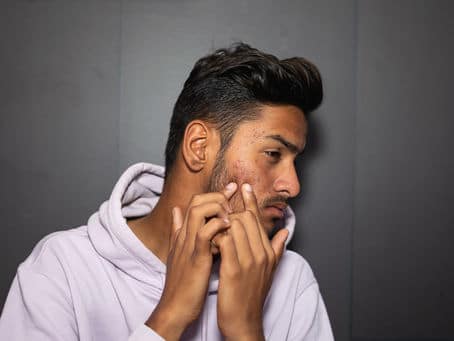Updated: Apr 6, 2023
Acne is an issue that we tend to associate with teenagers and adolescents. However, adult acne can be just as distressing and embarrassing. It may not offer a substantial health danger, yet it is emotionally and socially significant. Anyone who has battled acne knows how difficult it can be to heal the skin.
While there is no surefire way to get rid of acne for good, there are ways to reduce breakouts and keep your skin healthy. But first, let us learn the causes of acne breakouts.
What Causes Acne Breakouts?
Adult acne, also known as post-adolescent acne, develops after age 25. The same factors that induce acne in adolescents also work in adult acne. Excess oil production pores becoming clogged by “sticky” skin cells, bacteria, and inflammation are the four reasons that directly add to acne.
Some indirect factors influence the previously stated natural characteristics, such as:
- Hormones
- Genetics
- Diet
- Exposure to environmental factors
How Do You Prevent Acne Breakouts?
1. Keep Your Face Clean
Acne is caused by an accumulation of oil and bacteria on the skin, and by cleaning your face regularly, you can help remove excess oil and bacteria and avoid clogged pores. This can be accomplished by washing your face twice daily, once in the morning and once before night, with a gentle cleanser or face wash designed for acne-prone skin.
2. Avoid High-Glycemic Foods
Specific diets, such as those rich in sugar and processed carbohydrates, may aggravate acne. These meals with a high glycemic index cause inflammation and raise insulin levels, contributing to acne.
Limit your consumption of high-glycemic foods like:
- white bread
- donuts
- fries
- rice
- soda\s
3. Apply Topical Treatments
Over-the-counter remedies, such as creams and serums, can help reduce outbreaks in specific locations.
In topical therapies, salicylic acid or benzoyl peroxide is frequently used. Although not as potent as prescription-strength treatments, these medications can help avoid mild acne and reduce breakouts. Dermatologists also use topical retinoids, vitamin A-derived medications, to control and prevent acne. These treatments hasten the shedding and create new skin cells, resulting in less pore congestion.
In particular places, over-the-counter treatments, such as creams and serums, can help minimize outbreaks.
4. Determine Your Skin Type
Regarding skincare, various skin types have different needs, and understanding your skin type can help you select the right products and create a skincare routine tailored to your specific needs. Various skin kinds include oily, dry, standard, and combination.
5. Keep Your Hands Off Your Face
Throughout the day, our hands come into contact with a lot of bacteria and dirt, and when we touch our faces, we transfer these harmful substances to our epidermis. This can result in blocked pores and the formation of acne.
Furthermore, touching our faces may unintentionally pop or pick at pimples, causing further irritation and inflammation. This can result in acne scarring and a worsening of the condition.
Conclusion
Acne can be aggravating and challenging to manage, but there are effective ways to prevent it. It is also important to remember that what works for one individual may not work for another, so finding the ideal skincare routine for you may require trial and error. If your acne persists or worsens, you should always seek a dermatologist’s advice and treatment options.
If you need acne rejuvenation, Kaya Medical Aesthetics is here for you! We offer a variety of treatments designed to reduce the appearance of acne and enhance your skin’s overall health. Contact us now!


